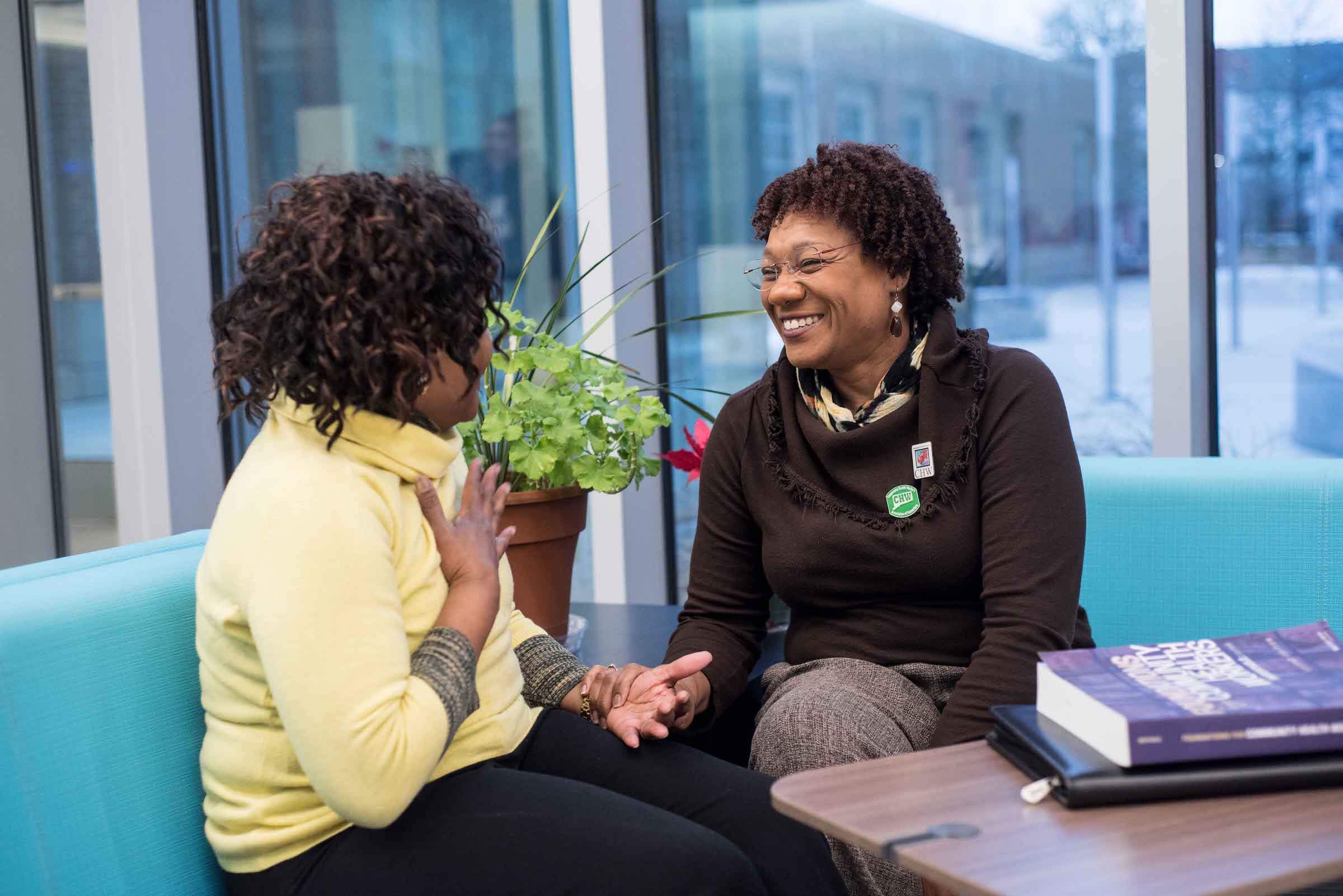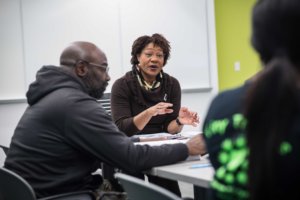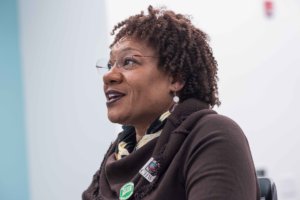Loretta D. Lloyd-Ebron is an expert in community health workers: She was one, even before she had the formal title, and now she teaches community health workers at Housatonic Community College in Bridgeport. Her story is an example of what makes community health workers unique within the health care system.
Click here to read last week’s story of a Hartford peer counselor who helps moms breastfeed, and here to read about a New Haven patient navigator who works with uninsured patients.
To learn more about community health workers in Connecticut, read our report Understanding Community Health Workers: Who they are and why they matter for Connecticut.

One thing that makes community health workers unique is the time they have to spend listening and getting to know people, says Loretta D. Lloyd-Ebron (right).
Gale Zucker Photography
Helping people always came naturally to Loretta D. Lloyd-Ebron. From a young age, she’d volunteer for food and clothing drives. If she heard about a new program or resource, she’d make a point of telling those in her neighborhood who could benefit. People came to her if they had trouble paying the electric bill or their rent; she’d listen and try to find a solution.
Years later, those attributes led her to a job at Optimus Health Care, a community health center in Bridgeport. She worked with pregnant women, helping them through their pregnancies and teaching skills for keeping their newborns safe and healthy.
Later, she became a school-based outreach worker, teaching students about safety and helping parents build skills. She helped families sign up for health insurance and nutrition assistance, and made sure students went to the school-based health center when they needed it.
Sharing from experience
Today she teaches community health workers at Housatonic Community College, where she also serves as a community health worker of sorts, connecting students to resources ranging from transportation and food pantries to tutoring and counseling.
Lloyd-Ebron makes a point of familiarizing herself with the programs she refers people to so she can understand and experience the entire process, seeing firsthand any snags people might face.
To her, it’s part of what makes community health workers unique.
“Your life skills, that’s the key,” she said. “A community health worker brings to the table these tidbits, these pearls of wisdom that they’ve obtained through their own life’s journey, hardships, struggles and issues.”
“We are from the community and we meet the community where they are,” she added.
Time to listen
Sometimes, Lloyd-Ebron said, community health workers are able to elicit information from people that other health professionals might not.
“We just listen. We have time,” she said. “We have time to sit and draw out some of the things that are really, really bothering an individual.”
That can have a powerful effect on how community health workers work with people, ensuring the advice they give is grounded in what matters to the patient.
“We listen to the stories of their family, their grandkids, and we take and absorb all of that and try to make sure we include it,” she said. Instead of telling an older patient she needs to exercise, Lloyd-Ebron might say, “Your grandson’s been coming around. Maybe you can go walking with him.”
The time community health workers spend listening, and the trust they build, can give them insight into why a person is having trouble staying healthy or following the doctor’s advice. They might learn a person can’t afford medication or struggles to understand his care plan – something that might not come up during an office visit with the doctor.
“The providers are essential, but they need to be able to do their job. They need to be able to assess the person, give them the services that they need, see them in that 15 to 20-minute gap and be able to say, ‘I’ll see you next time, let’s go over how you’re doing,’” Lloyd-Ebron said. “The community health worker could help convey that flux in the middle.”

